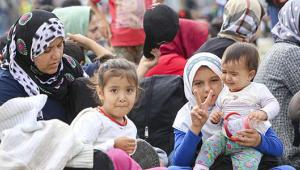By Judith Ugwumadu | 3 March 2015
Weak public health infrastructure and capacity is making it difficult to eradicate Ebola, the United Nations’ special envoy for Ebola has told Public Finance International.
David Naborro said there were still 100 hundred new Ebola cases emerging each week, despite total numbers reducing almost tenfold in the last four months.
He said that it was ‘difficult to reduce that hundred to zero’, but the UN’s emphasis right now was to put the right number of people in place to establish an effective system to identify all cases and reduce the number of incidents reported.
‘What we are doing is working flat out for elimination,’ Nabarro told PFi.
‘The last phase of elimination is always the toughest part because you have to really comb through communities to try and find people with disease and to follow them up.’
Nabarro also stressed that it was ‘very tough’ to respond to outbreaks in poor countries because of the often rudimentary health infrastructure.
‘To deal with outbreaks countries need to be able to do surveillance, identify cases and use laboratory services to study an infectious disease,’ he said.
‘You need to be able to invest against contacts, that is how you track what is happening in an outbreak and to have health systems that can do that sort of thing is quite expensive.
‘Having this sort disease persisting is really an unsatisfactory outcome. The only acceptable result of the current Ebola outbreak is for the disease to be eliminated and for there to be strong public health capacity.’
Naborro’s comments come as world leaders and international donors are today meeting in Brussels to discuss concrete plans of long-term recovery and resilience of affected countries.
The European Commission’s ‘Ebola: From Emergency to Recovery’ conference will review and plan ways of ensuring funds already pledged are made available and international support is maintained until the number of Ebola infections is down to zero.
Priority areas up for discussion include resuming and improving basic services like health, education, water and sanitation as well as the need to return to sustainable economic development. The governments of Guinea, Liberia and Sierra Leone will present their assessment and plans for national recovery.
The World Bank is also preparing a new financing facility, including a market-based insurance mechanism, to help boost preparedness for future disease outbreaks.













